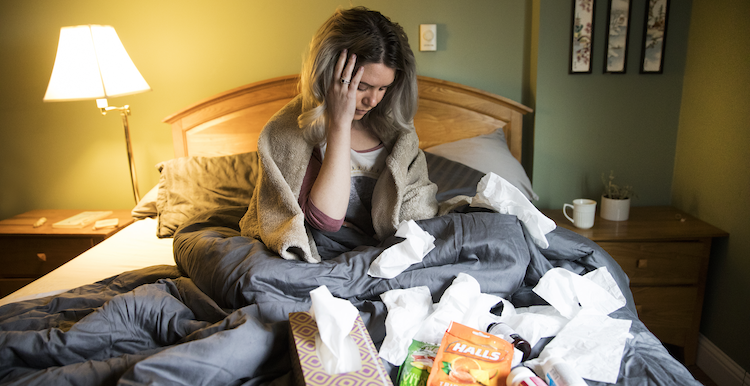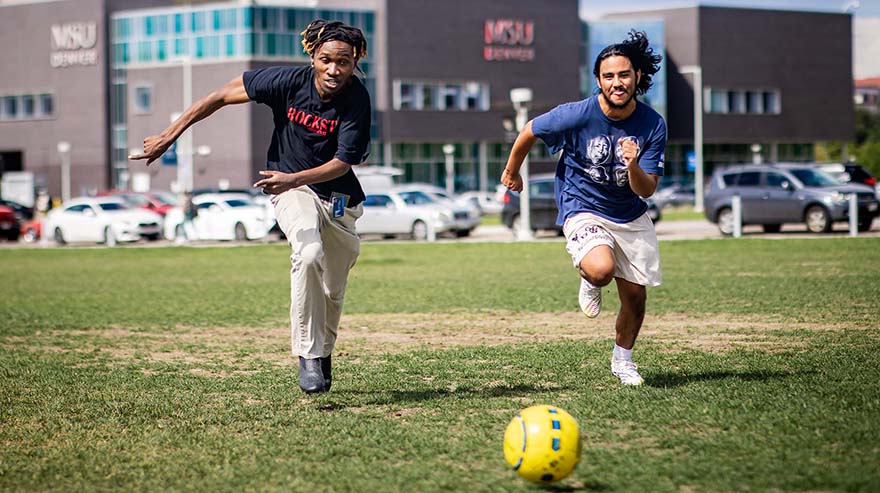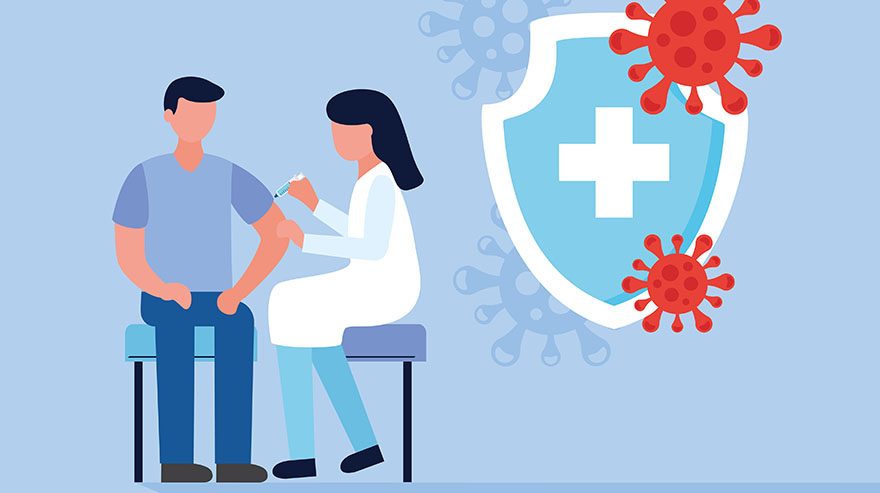Cold/flu/Covid-19 season is here, and experts (including those on the Auraria Campus) are urging everyone to schedule their Covid-19 booster and flu shot ASAP.
“Vaccines are safe and save lives,” said Jordan Feterl, immunization coordinator for the Health Center at Auraria. “It’s safe to get both the flu vaccine and Covid-19 booster at the same time, and it will take you less than 30 minutes. That 30 minutes may save your life or the life of someone you know.”
Feterl adds that vaccination is especially important for anyone who has children or people over age 65, as these groups are at increased risk of respiratory illness.
Sheryl Zajdowicz, Ph.D., professor and chair of Biology, and Feterl spoke with the Early Bird about why this could be a particularly nasty respiratory-illness season and why it’s imperative to get boosted and vaccinated.
Why is it important to get the omicron booster and flu shot?
Zajdowicz: The updated booster is bivalent, meaning it protects against both the original Covid-19 strain and the omicron variants BA.4 and BA.5. Previous boosters primarily protected against the original strain. Currently, the BA.4 and BA.5 omicron subvariants are the most transmissible, with BA.5 the most predominant subvariant currently causing infections in the U.S. — this is why getting the new booster will be beneficial. With individuals resuming typical activities and holidays approaching, there are more opportunities for exposure to infectious organisms, including viruses that cause Covid-19 or flu.
Getting the flu vaccine is also important because infectious-disease and public-health experts predict a severe flu season based on the severity of the flu season that the Southern Hemisphere experienced (the worst season in five years). That is usually a good indicator for what will happen in the Northern Hemisphere. While we can’t directly predict that we’ll see the same severity, it’s good to be prepared, and vaccination is still one of the greatest preventatives that we have for limiting the spread of infectious disease.
Benefits include:
- Preventing individuals (adults and children alike) from getting sick with the flu.
- Reducing the severity of disease.
- Reducing the number of hospitalizations associated with flu, as well as reducing morbidity and mortality associated with influenza illnesses.
Feterl: I would add that millions of people get influenza every year. Hundreds of thousands of those people are hospitalized, and tens of thousands die from influenza-related causes annually.
For most people, contracting influenza means a few days of feeling crummy and missing school/work, but for some it can result in more serious illness. Complications of influenza can include bacterial lung infection (pneumonia), ear infections, sinus infections and worsening of chronic medical conditions, such as congestive heart failure, asthma or diabetes. An annual seasonal flu vaccine is the best way to help protect against flu.
It’s also concerning that many people haven’t been exposed to the flu over the past few years due to Covid-19 precautions (i.e., hand washing, hand sanitizer, mask wearing, social distancing and isolation) and low circulating levels of the flu. Immunity to respiratory viruses, including the flu and Covid-19, wanes over time. Many people have not been exposed to the influenza virus “in the wild” for a couple of years, lowering their natural immunity.
Should Roadrunners stay home even if they just have mild symptoms of a cold or flu?
Zajdowicz: It’s typically good practice to stay home when you’re sick. Individuals with mild symptoms may transmit to individuals who are susceptible for developing severe symptoms.
Feterl: If staying home is not feasible for you, wearing a mask on campus is highly advised to reduce spread.
Additionally, while the Auraria Campus remains mask-optional, anyone who is immunocompromised, immunosuppressed or anxious about exposure should feel free to wear a face mask.
How to schedule boosters and flu shots
Roadrunners can get an influenza vaccine and a Covid-19 omicron booster at the Health Center at Auraria by scheduling online through the patient portal. Step-by-step instructions can be found here.
Walk-ins will be accommodated as time allows.
Vaccines are available in Plaza Building Room 111.
When to mask up
- After you have been isolated due to Covid-19.
- After close contact with a Covid-19-positive individual.
- On public transit.
- If you have a compromised immune system or are at high risk for getting severe sickness.
- If you share a household with susceptible individuals or when visiting susceptible individuals.
- If you’re in a crowded indoor venue.
- If you are feeling ill with a fever, fatigue, nausea, vomiting, diarrhea or a cough.
More seasonal health and safety tips
- Avoid close contact with people who are sick.
- Stay home if you are sick.
- Wash hands and avoid touching eyes, nose and mouth.
- Cover coughs and sneezes.
- Wear a mask.
- Get vaccinated.
- Regularly wash your clothes and bedding.
- Disinfect high-touch surfaces (i.e., laptop keyboard, desk, countertops, light switches, etc.)
- Eat a balanced diet.
- Get adequate sleep.
- Avoid smoking and vaping.
- Exercise regularly.








